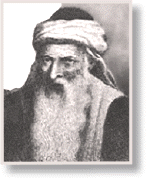 Call me unreasonable. I ask, if a billionaire already paid for a Torah curriculum, why does it still cost $30 a volume and $900 for a class of 20 students? And if 50 schools in NY already adopted it, why name only three? And who wrote the curriculum? 100 people and not a single name? And where does someone get it? And is it an encyclopedia or a curriculum or both? I know one thing about teaching (well maybe a few things). You don't teach middle school children with encyclopedia articles. Nu. What is this?
Call me unreasonable. I ask, if a billionaire already paid for a Torah curriculum, why does it still cost $30 a volume and $900 for a class of 20 students? And if 50 schools in NY already adopted it, why name only three? And who wrote the curriculum? 100 people and not a single name? And where does someone get it? And is it an encyclopedia or a curriculum or both? I know one thing about teaching (well maybe a few things). You don't teach middle school children with encyclopedia articles. Nu. What is this?Looks to me like a certain billionaire got his news release published in the Sun. And then he did not want to be interviewed. It would have been much nicer to have a real newspaper with real reporters write a real story about this.
When you don't do that, you get charming paragraphs like this:
"Nobody is here to proselytize, it's about becoming connected to Judaism," the founder and editor in chief of Project Taryag, Rabbi David Wax, said.That will suffice as our nonsense quote of the week, perhaps of the month. Bizarre.
Billionaire Turns Attention To Torah's Commandments
BY E.B. SOLOMONT - Staff Reporter of the Sun
The latest project of an Upper East Side billionaire famous for his colossal Hamptons mansion is a 20-volume encyclopedia of all 613 commandments in Judaism. The "Encyclopedia of the Taryag Mitzvoth," funded by the industrialist Ira Rennert, lists and explains each commandment in the Torah, such as the 25th commandment, to believe in God, and the 33rd, to respect and honor your parents.
A companion curriculum, geared toward middle school students, has been adopted by 500 schools worldwide and 30 in the New York area, including the Ramaz Middle School, Manhattan Day School, and the Yeshiva of Flatbush in Brooklyn.
Mr. Rennert, the chairman of the mining and metals conglomerate Renco Group Inc., donated $5 million to fund the encyclopedia and curriculum, called Project Taryag. The word taryag refers to the 613 Torah commandments, the basis for Jewish law.
In recent years, Mr. Rennert made headlines for building a home in Southampton that has more than 20 bedrooms, 30 bathrooms, and a 164-seat movie theater.
Mr. Rennert declined an interview request relayed through a spokesman, but in a statement, called the project a "formidable educational system that ensures the participants' emotional as well as intellectual involvement."
Endorsed by the chief rabbi of Tel Aviv, Israel, Yisrael Meir Lau, the encyclopedia is available in English, Hebrew, and Spanish. Translations into Russian and French are in the works.
The project's editors stressed that the material is appropriate for Jews across the religious and educational spectrum and said they aim to introduce the school curriculum to 350,000 students within five years.
"Nobody is here to proselytize, it's about becoming connected to Judaism," the founder and editor in chief of Project Taryag, Rabbi David Wax, said.
Rabbi Wax, a New Jersey businessman, conceived of the project nearly six years ago when he observed a gap in his children's Jewish education when it came to instruction on Judaism's commandments, the basis for practical Jewish law.
Rabbi Wax said the project's curriculum is the first to present Judaism's commandments in a uniform way in an aesthetic similar to secular textbooks. The curriculum includes workbooks for students and a teacher's guide.
"We're using basically the same educational tools today that our parents did," Rabbi Wax said. "We have simply not advanced."
According to Rabbi Wax, some 100 educators, rabbis, editors, graphic artists, and education consultants contributed to the curriculum and encyclopedia. The final product is based on "classic sources" such as the Bible, the Talmud, the work of 12th-century philosopher Moses Maimonides, and a 13th-century book of education that catalogs and discusses the Torah's commandments.
Each book of the encyclopedia set costs $30. Schools can purchase the curriculum for $900 for each class of 20 students.
Experts in Jewish education said the curriculum communicates a "performance-based" lesson. "From a conceptual standpoint, it's an enticing idea for Jewish education," the director of doctoral studies at Yeshiva University's Azrieli Graduate School of Jewish Education, who was not involved in developing the taryag curriculum, Scott Goldberg, said. "It focuses the students on the performance" of Jewish law.
School administrators who adopted the curriculum said it fills a void, since Judaic education includes the biblical narrative but only advanced students typically study the more complex codes of Jewish law and oral tradition.
"A major conundrum has been teaching Jewish law because all of the standard texts, the authoritative texts of Jewish law, such as 'the Code of Jewish Law' by Rabbi Joseph Caro that came out in the 1500s, they're not accessible to a young student," an assistant headmaster at the Ramaz Middle School, Rabbi Shlomo Schwartz, said.
No comments:
Post a Comment